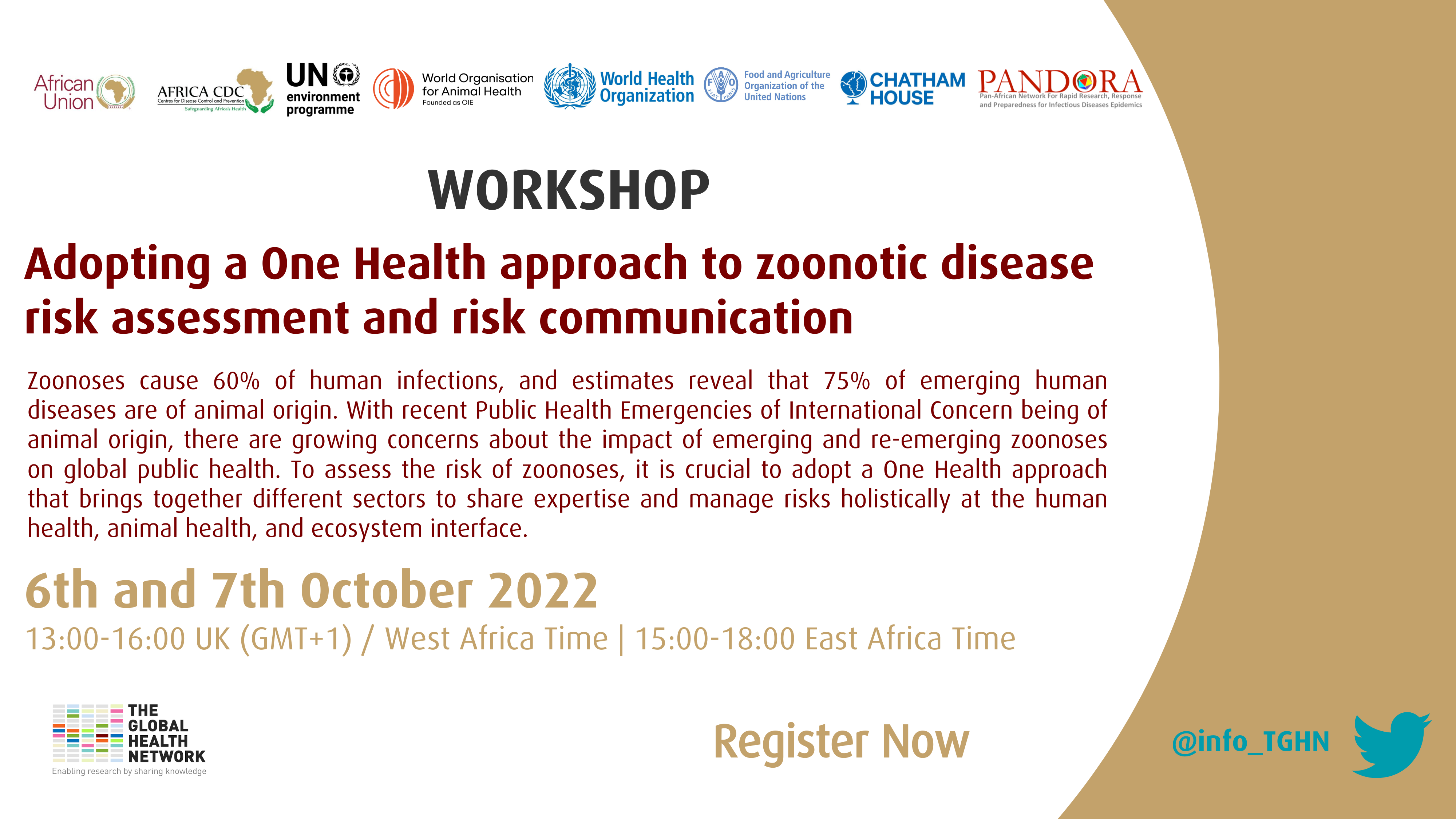

 Zoonoses cause 60% of human infections, and estimates reveal that 75% of emerging human diseases are of animal origin. Indeed, the numerous natural and anthropic upheavals that we have been experiencing for several years are modifying ecosystems in a sustainable manner, leading to a significant change in the dynamics between the actors evolving at the human/environmental/animal interface. With recent Public Health Emergencies of International Concern being of animal origin, there are growing concerns about the impact of emerging and re-emerging zoonoses on global public health.
Zoonoses cause 60% of human infections, and estimates reveal that 75% of emerging human diseases are of animal origin. Indeed, the numerous natural and anthropic upheavals that we have been experiencing for several years are modifying ecosystems in a sustainable manner, leading to a significant change in the dynamics between the actors evolving at the human/environmental/animal interface. With recent Public Health Emergencies of International Concern being of animal origin, there are growing concerns about the impact of emerging and re-emerging zoonoses on global public health.
To assess the risk of zoonoses, it is crucial to adopt a One Health approach that brings together different sectors to share expertise and manage risks holistically at the human health, animal health, and ecosystem interface. Risk assessment entails measuring the likelihood of a zoonotic event and its possible impact. This should be done through a systematic and multidisciplinary process of gathering, assessing, documenting, and sharing information and joint surveillance capacities to estimate the zoonoses risk level over a specific period and geographical area.
Once the risk level has been assessed, it is important to establish risk communication and risk management strategies to mitigate effectively the risk at the individual and community level. Risk communication supports informed decisions and the adoption of effective and comprehensive disease mitigation practices using the prevention, detection, response to and recovery modality. The lack of such strategies can result in uncertainty, misinformation, mistrust, civil strife, and unrest. When communicating about the risk of a zoonotic disease, it is crucial to provide consistent information and messaging from the different sectors and work with the communities to understand social and cultural norms, build trust, improve access for hard-to-reach groups, identify response gaps and obtain feedback.
With a focus on zoonoses and the importance of adopting a One Health approach, the main objectives of this workshop are to:
- Share the principles of risk assessment in the context of zoonoses
- Discuss the process of conducting joint risk assessments
- Explain the principles of risk communication for zoonoses and the implementation of joint risk communication strategies
- Encourage participants to share knowledge, competencies, and skills gained during the workshop with colleagues in different African countries
Poster | Agenda
|
|
|
Watch full screen: DAY 1 - Session 1 Dilys Morgan (UK Health Security Agency) | Download presentation [ppt 1.5mb] |
|
Watch full screen: DAY 1 - Session 2 Mark Nanyingi (Food and Agriculture Organization) | Download presentation [pdf 3mb]
|
|
Watch full screen: Facilitators:
|
|
|
|
Watch full screen: Kathrin Heitz-Tokpa (Centre Suisse de Recherches Scientifiques in Côte d'Ivoire) | Download presentation [pdf 2.4mb] |
|
Watch full screen: Rodrigue Barry (World Health Organization) | Download presentation [ppt 500kb] |
|
Watch full screen: Facilitator:
|